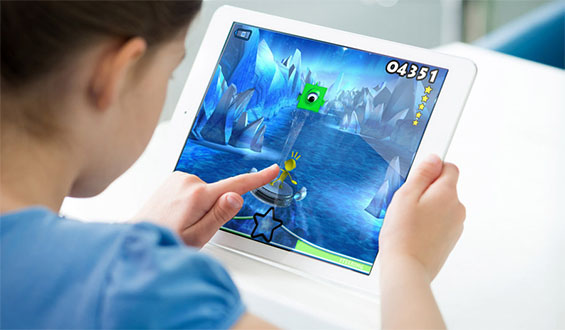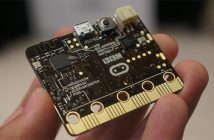
Akili Interactive Labs out of Boston has created a video game that they hope will help treat children diagnosed with attention-deficit hyperactivity disorder by teaching them to focus in a distracting environment.
The game, Project: EVO, is meant to be prescribed to children with ADHD as a medical treatment. And after gaining $30.5 million in funding, investors appear to believe in it. The company plans to use the funding to run clinical trials with plans to gain approval from the US Food and Drug Administration in order to be able to launch the game in late 2017.
Players will enter a virtual world filled with colorful distractions and be required to focus on specific tasks such as choosing certain objects while avoiding others. The game looks to train the portion of the brain designed to manage and prioritize all the information taken in at one time.
Pilot studies of the game using 80 children between the ages of eight and 12 found that, at least temporarily, attention and spatial memory in those with ADHD showed improvements.
“There is a big need in the marketplace from parents, patients and doctors for nonpharmacological therapies for ADHD,” said Eddie Martucci, chief executive of Akili. “We’re doing work to see where [‘Project: EVO’] will fit.”
Current data from the Centers for Disease Control and Prevention show that as many as 11% of children, or 6.4 million, suffer from ADHD as of 2011.
Martucci said he does plan to keep the clinical trials as close to gold-standard drug trials as possible. This means that patients will be “blinded” so that they are unaware if they are playing the actual Project: EVO game or an imitation of the game featuring similar characteristics but lacking those believed to improve cognition. In addition, adverse events, or side effects, will be recorded, although Akili said the worst it expects to happen is to have someone “drop it on their toe,” writes Denise Roland for The Wall Street Journal.
The game does have some critics, including a number of doctors who are skeptical of using video games as a medical treatment. Russell Barkley, a clinical professor of psychiatry at the Medical University of South Carolina, said that while brain-training video games already on the market did show improvements while playing the game, those effects did not extend into a user’s real world life at home and at school.
The company is not the first to develop a game with the hope of it improving cognitive functioning, but it does hope to set itself apart from other companies such as Cogmed, owned by Pearson PLC, and San Francisco-based Lumos Labs Inc. through FDA approval, which would allow doctors to prescribe it as a medical treatment.
“While our product does look like a game, it is a medical device—digital medicine in the form of a video game,” Martucci wrote to Thu-Huong Ha for Quartz.
The company, which typically looks to create clinically validated digital medicine for cognitive assessment and treatment, is also focusing its efforts on developing ways to treat autism, depression, Alzheimer’s, and brain trauma.




